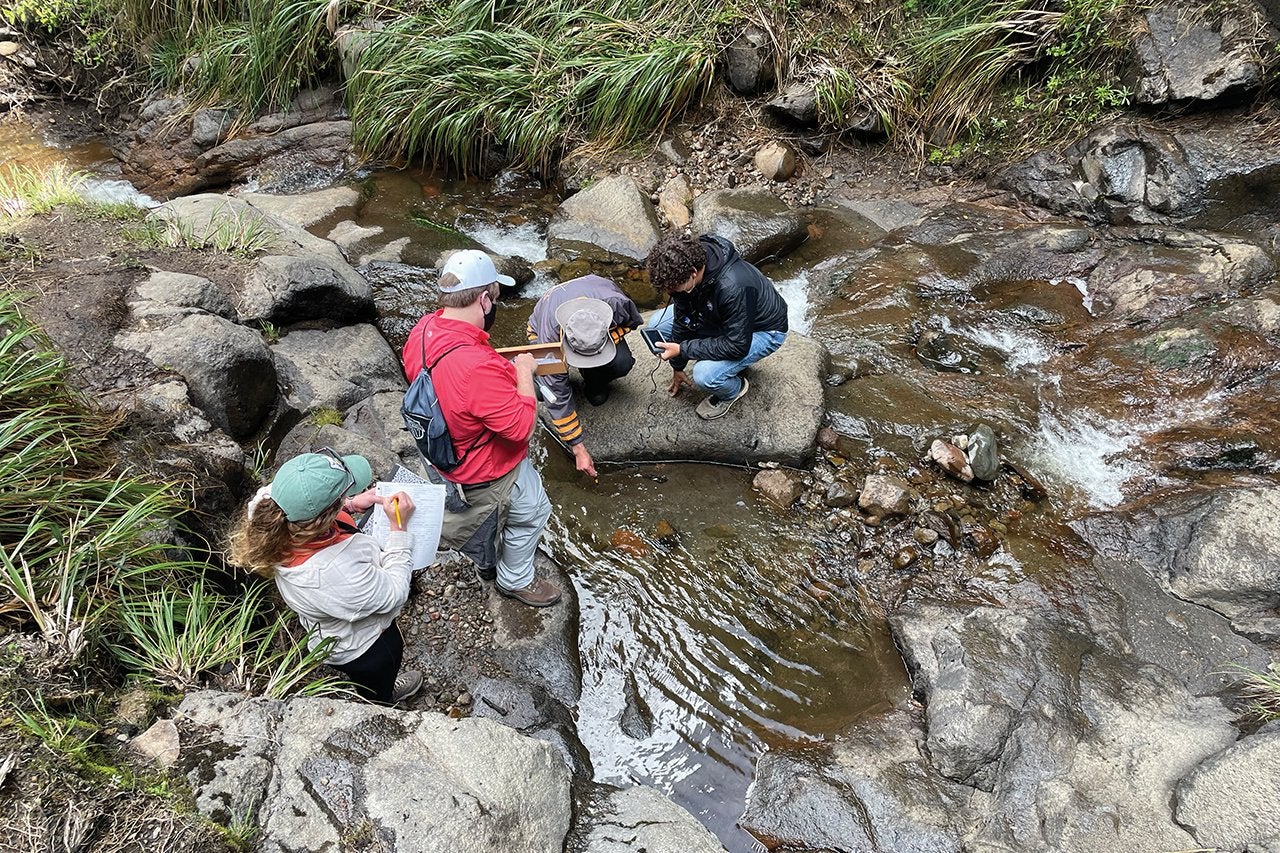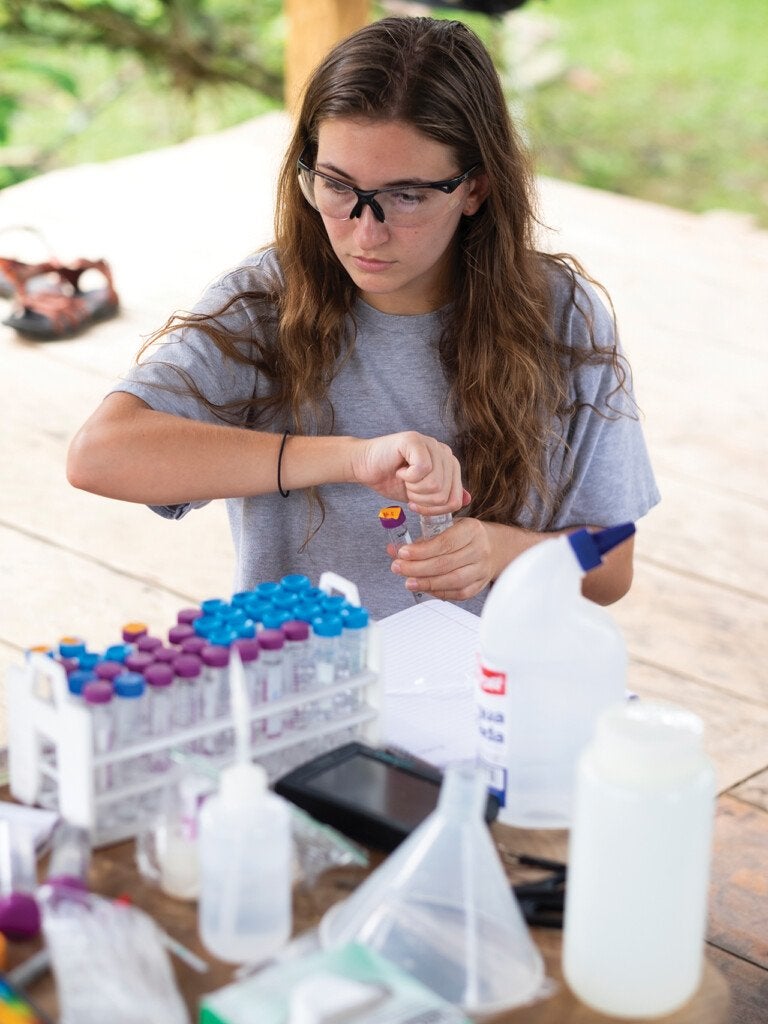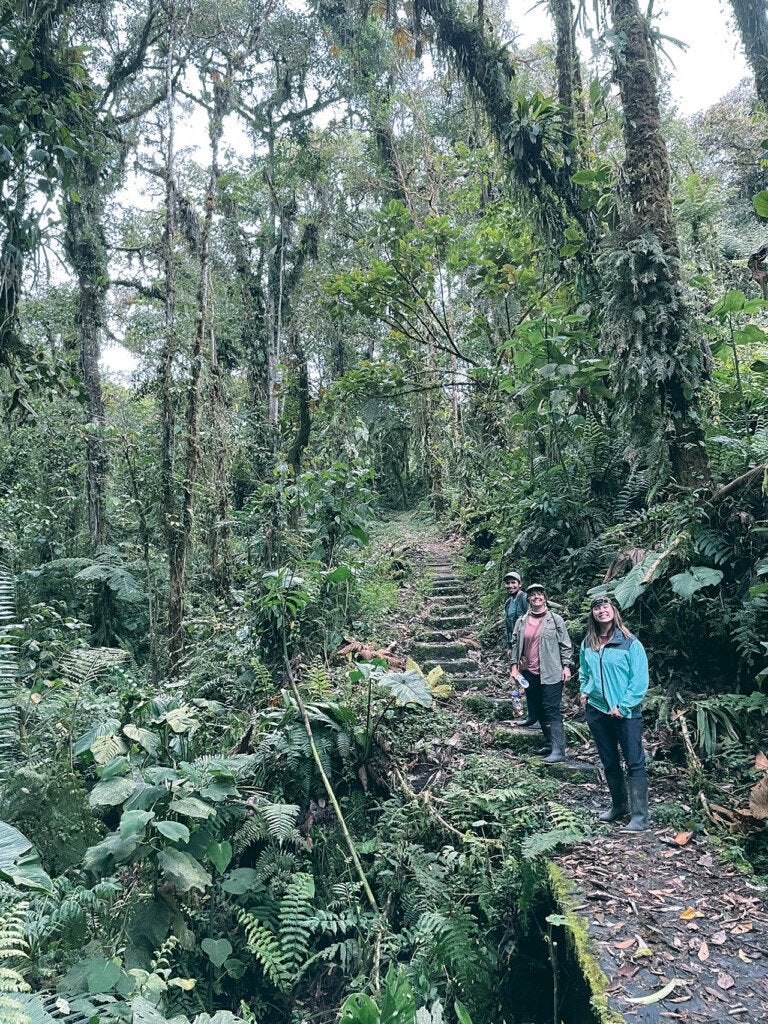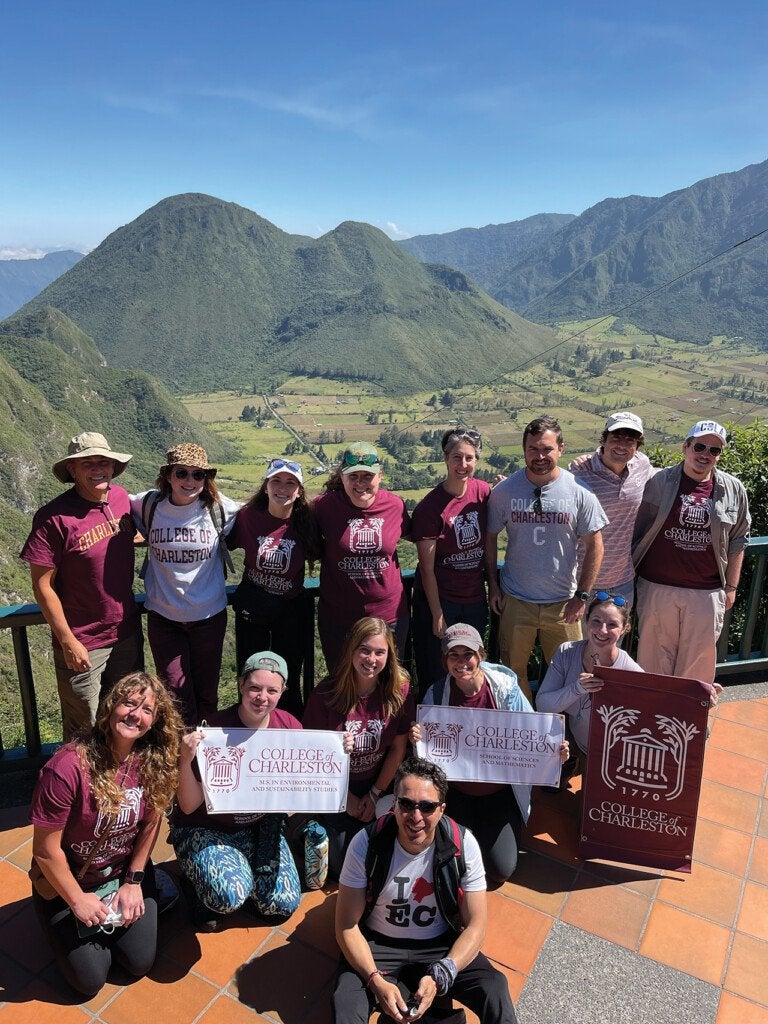Between summer research projects and required credit hours, STEM (science, technology, engineering and math) majors don’t have a lot of time to study abroad. But thanks to a new program, all they needed was two weeks.
Six graduate and five undergraduate students spent two weeks in Ecuador in August as the first cohort of the College’s new intensive environmental chemistry and sustainability study abroad program. The brainchild of Kate Mullaugh, associate professor of chemistry and biochemistry, and William Veal, professor of teacher education and adjunct professor of chemistry, the program allows students the opportunity to study water quality and sustainability issues.
“We wanted them to see the contrast of industrialization and how sustainability has changed and will continue to change,” says Veal, noting the environmental impacts of oil companies, particularly on rural communities. “The students left with the ultimate question of whether having the oil companies come was sustainable. The answer is yes for the country, but no for the community.”
Students also experienced the culture of Ecuador, including El Placer, a village of corrugated tin-roofed homes. Casey O’Brien, a biochemistry major and Spanish minor, was struck by the villagers’ generosity, despite their low income and limited means.
“There is no division between households. No one had locks on their doors, and little kids wandered in and out of people’s homes,” says O’Brien, who was also impressed by the self-sufficiency of El Placer. “When COVID hit, they were able to make their own bubble. They used their farm and resources and didn’t need to interact with the outside world for the first six months.”
It was indeed time well spent learning how intertwined health, community, science and sustainability really are.







